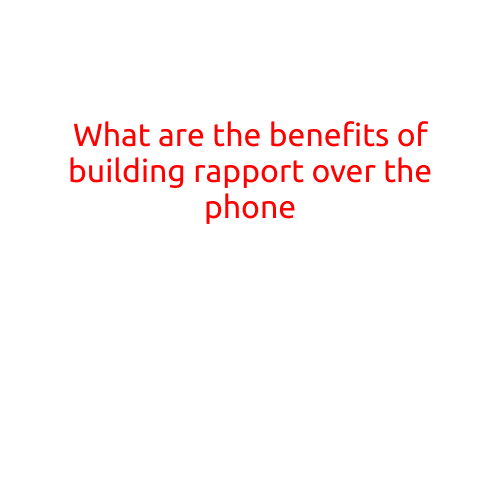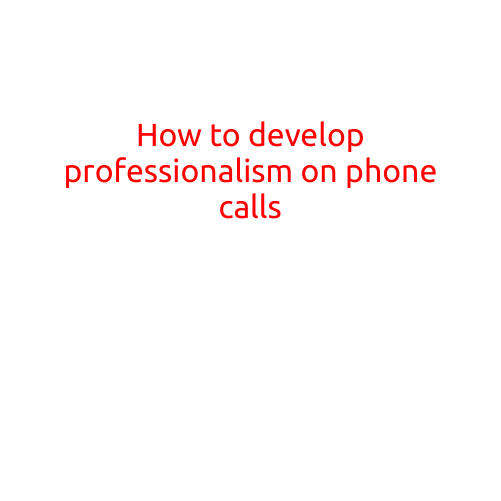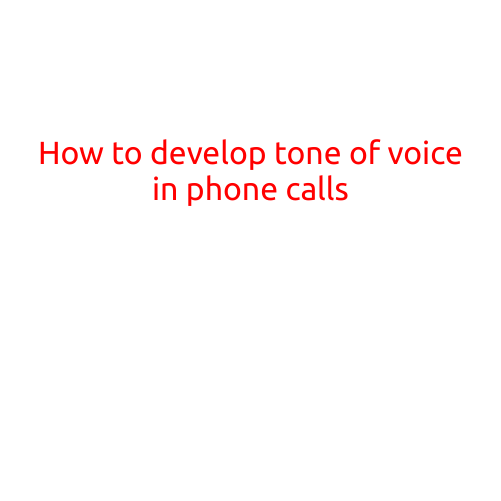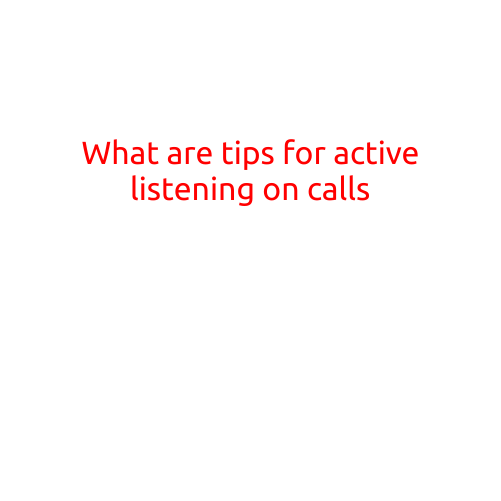
What are the Benefits of Building Rapport over the Phone?
In today’s digital age, phone conversations have become an essential tool for building relationships and conducting business. With the rise of remote work and virtual communication, the art of building rapport over the phone has taken on a new level of importance. In this article, we’ll explore the benefits of building rapport over the phone and provide tips on how to do so effectively.
What is Rapport?
Rapport is the process of establishing a connection or understanding with someone by creating a sense of mutual respect, trust, and empathy. When you build rapport with someone, you create a foundation for a strong and meaningful relationship that can lead to long-term success.
Benefits of Building Rapport over the Phone
- Improved Communication: When you build rapport over the phone, you create a more conducive environment for effective communication. You’re more likely to understand each other’s perspectives, and your conversations will flow more smoothly.
- Increased Trust: Building rapport over the phone helps establish trust, which is essential in any professional or personal relationship. When people feel heard and understood, they’re more likely to open up and be receptive to your ideas.
- Enhanced Productivity: When you build rapport with someone, you’re more likely to get straight to the point and tackle important issues efficiently. You’ll spend less time getting bogged down in small talk and more time focusing on the tasks at hand.
- Better Outcomes: Building rapport over the phone can lead to more successful outcomes, whether you’re negotiating a deal, resolving a conflict, or simply trying to build a stronger relationship.
- Increased Customer Loyalty: When customers feel like they have a personal connection with you, they’re more likely to become loyal customers. Building rapport over the phone can help you establish this connection and keep customers coming back for more.
Tips for Building Rapport over the Phone
- Active Listening: Pay attention to what the other person is saying and show that you’re engaged in the conversation. This can be as simple as saying “I understand what you’re saying” or “That makes sense.”
- Use Positive Body Language: Even though you’re not in the same physical space, use verbal cues like “ahh, I love that” or “that’s great” to show you’re engaged and interested.
- Find Common Ground: Look for ways to connect with the other person, whether it’s a shared interest or a common goal. This can help create a sense of rapport and build a stronger bond.
- Be Authentic: Be yourself and don’t try to be someone you’re not. People can usually tell when you’re being insincere, and it can ruin the rapport you’re trying to build.
- Show Empathy: Put yourself in the other person’s shoes and try to understand their perspective. This can help create a sense of empathy and build trust.
Conclusion
Building rapport over the phone is an essential skill for anyone who communicates regularly, whether it’s for personal or professional reasons. By following the tips outlined in this article, you can establish a stronger connection with others, improve communication, increase trust, and achieve better outcomes. Remember, building rapport is about creating a connection with someone, not just collecting a list of facts. By focusing on building relationships and establishing trust, you’ll be well on your way to becoming a master of phone-based communication.





